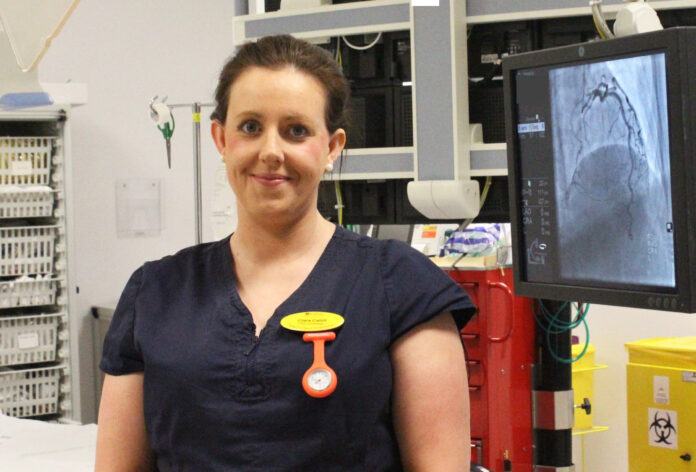
A SPECIALIST clinician at University Hospital Limerick (UHL) has said that those living with heart failure can live longer and have a great quality of life.
The Dooradoyle hospital is currently treating 460 patients living with the condition.
Ciara Cahill, Cardiology Clinical Nurse Specialist at UHL shared the experiences of colleagues working in specialist clinics in the Limerick hospital, as well as in Ennis and Nenagh.
“Although heart failure can sound frightening, it is important that patients understand their heart is not about to stop,” she said.
Heart failure describes a heart that is not working as well as it should and can affect people of any age.
It occurs when the heart cannot pump enough blood around the body, as the walls of the heart become too weak or too stiff to work properly. It is estimated that 90,000 people live with the condition in Ireland.
Ciara explains that the most common symptoms of heart failure include fatigue; shortness of breath, especially with activity or when lying flat; swollen feet, ankles or abdomen; and weight gain over a short period of time.
Others may include loss of appetite; dizziness or near fainting episodes; rapid heartbeat; changes in mood; or a reduced ability to exercise.
“Symptoms like these happen when your heart is not pumping blood around the body efficiently, allowing excess fluid to pool in your lungs and elsewhere in your body, most usually your feet and ankles.
“However, it’s important to note that heart failure can be prevented. Reducing your risk factors for heart disease will help prevent heart failure, such as not smoking, controlling high blood pressure, eating healthy food, maintaining a healthy weight, staying physically active and drinking moderately.”
Ciara says that heart failure generally responds very well to a combination of medicines and lifestyle changes.
“Some people may need operations, pacemakers, or similar devices. With modern treatment, people with heart failure can lead long, quality lives.”
Last year, the Heart Unit at UHL facilitated over 2,500 outpatient appointments. Of those, approximately 1,500 were review appointments of patients known to the service and a further 100 were new patients enrolled.
“Thankfully, we are recovering from the disruptive Covid-19 pandemic, and in the first quarter of 2023 our service in UHL has already seen 50 new patients through our clinics and 800 review appointments,” said Ciara.
“We offer a flexible approach to our clinical care, facilitating clinics for our younger patients before they go to work and often late morning appointments for our older patients for whom attending appointments may be more challenging.
“One of the primary aims of our clinic is admission avoidance, keeping our patients well in the community and avoiding the need for hospital admission.”


